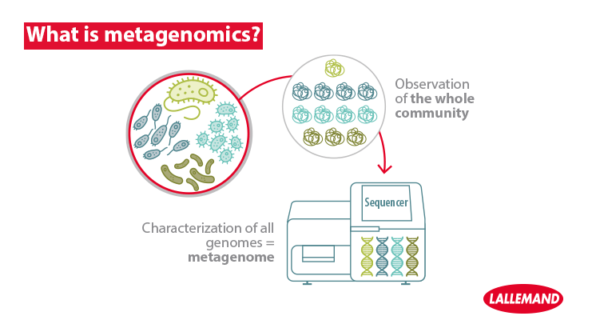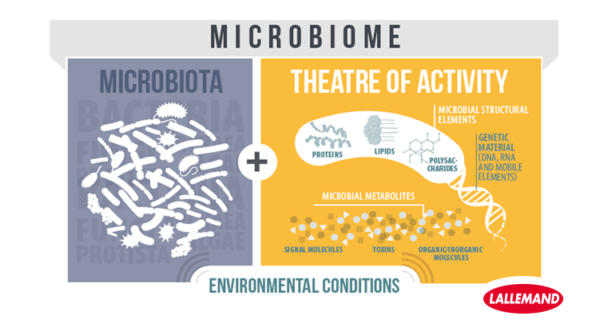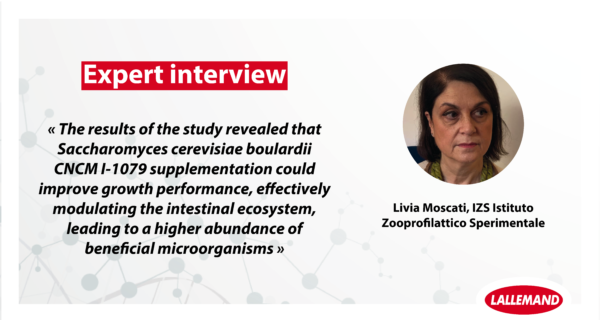Blog | Reading Time 2 minutes
2 questions to Sylvie Binda, R&D Bioprocess & Technology Director
“The human genome consists of about 23,000 genes, whereas the microbiome genome encodes more than 3 million genes producing probably thousands of metabolites with metabolic functions for the host.”
The research into the microbiome in human medicine — and its subsequent manipulations aimed at improving human health — appear as a promising and realistic window into the future of microbiota modulation for animal nutrition and well-being. This is why we decided to turn to our colleagues from Lallemand Health Solutions, a pioneer in probiotic research and development, to find out about our human microbiome knowledge and its manipulation in human medicine.
Is it possible to define a ‘normal’ microbiome in human?
There is inter-individual variability depending on the diet, genetic background, age, environment, etc. However, in general, healthy adults have a high relative abundance of bacteria from the Bacteroidetes and Firmicutes phyla (both can even represent 80% of the gut microbiota composition) and lower proportions of the Proteobacteria, Actinobacteria, Fusobacteria, and Verrucomicrobia phyla. Within these phyla, hundreds of bacterial species contribute to intestinal homeostasis.
This microbiome is more and more considered by scientists as an organ — albeit a “virtual” one as it is difficult to delimit its frontiers — but as important as the other 80 organs, which constitute the human body. An alteration in the gut microbial community is linked to a number of intestinal conditions, including cancer, obesity, diabetes, autism, a variety of bowel disorders, and more.
How has microbiota research evolved recently?
In just one decade, a lot of knowledge has been acquired regarding the location, the composition, the stability over time, the changes, and the host-related factors that can influence our microbiome. Indeed, throughout the 2010s, sequencing technologies became easier to manipulate and cheaper. This cascaded into a boom in academic research centered around the microbiome with a significant increase in the clinical investigation (more than 2,000 clinical trials are now registered globally as we speak). The hope in this microbiome race is that it will finally yield results showing whether microbiome treatments do work in humans, such as fecal transplant.
Published Aug 12, 2021
Related articles
Need specific information?
Talk to an expert


